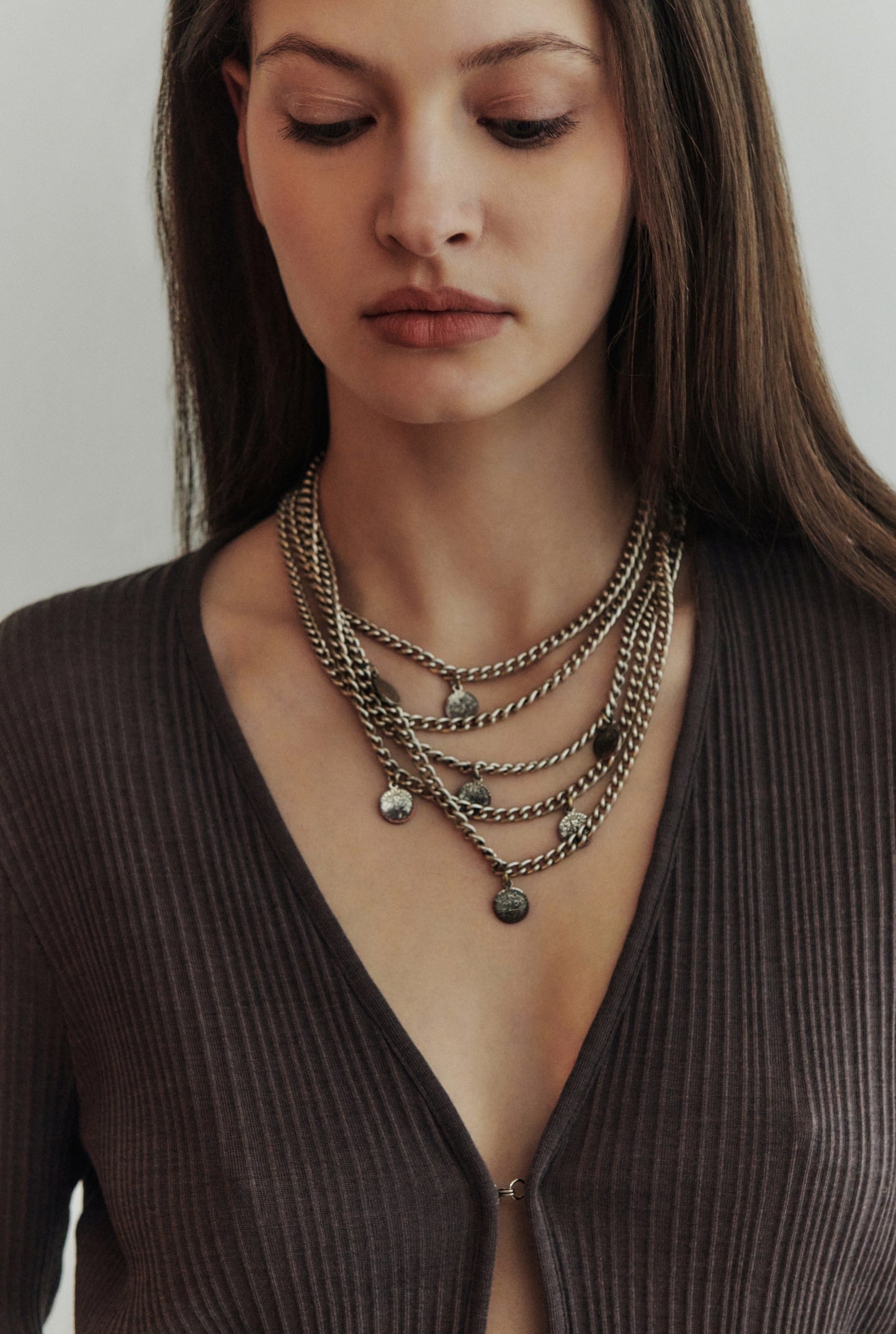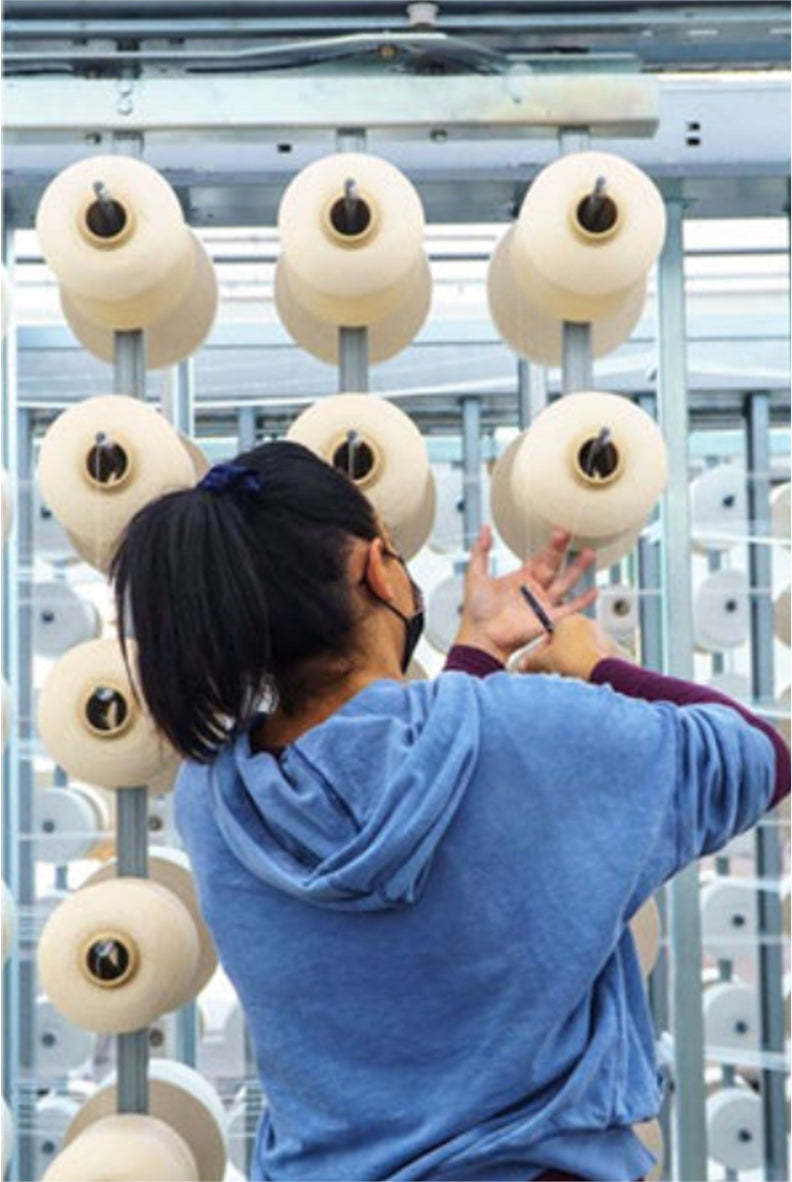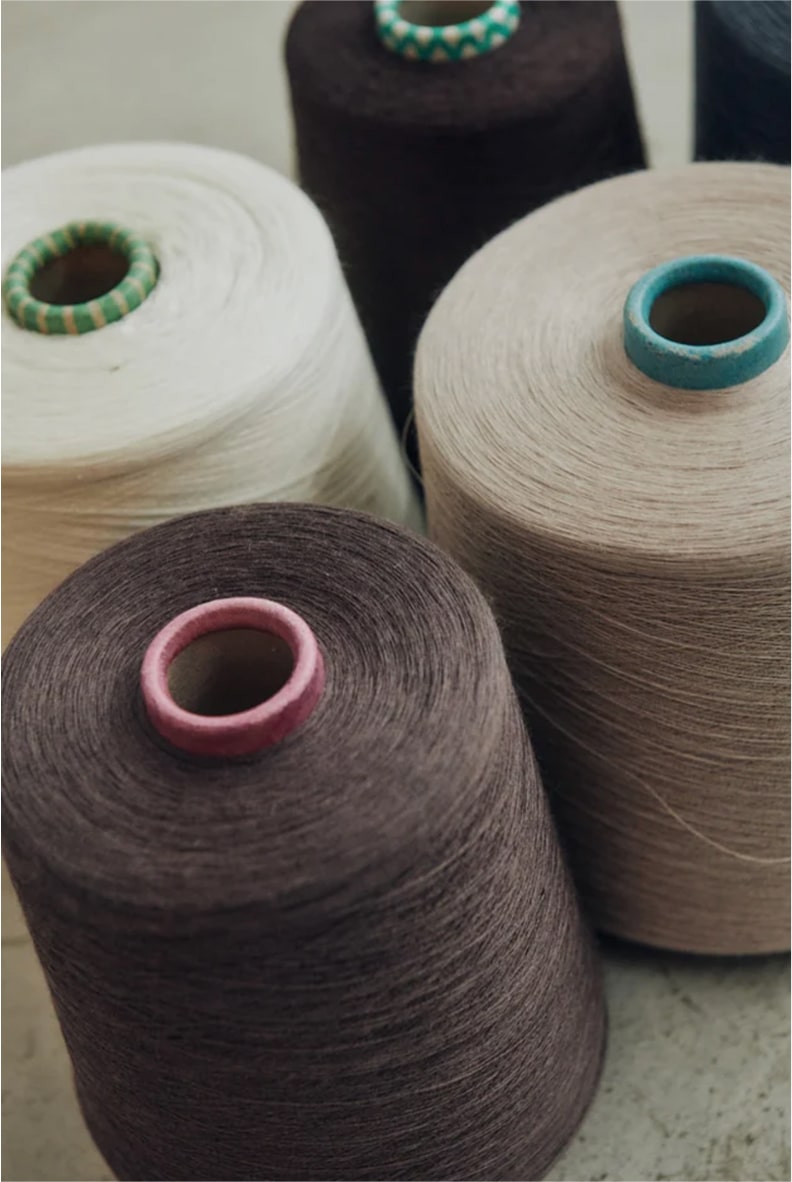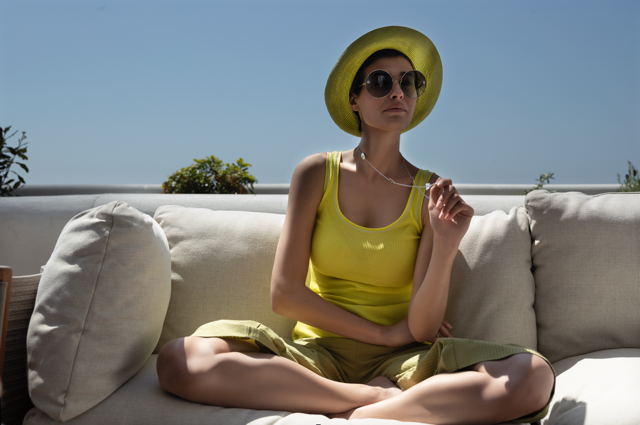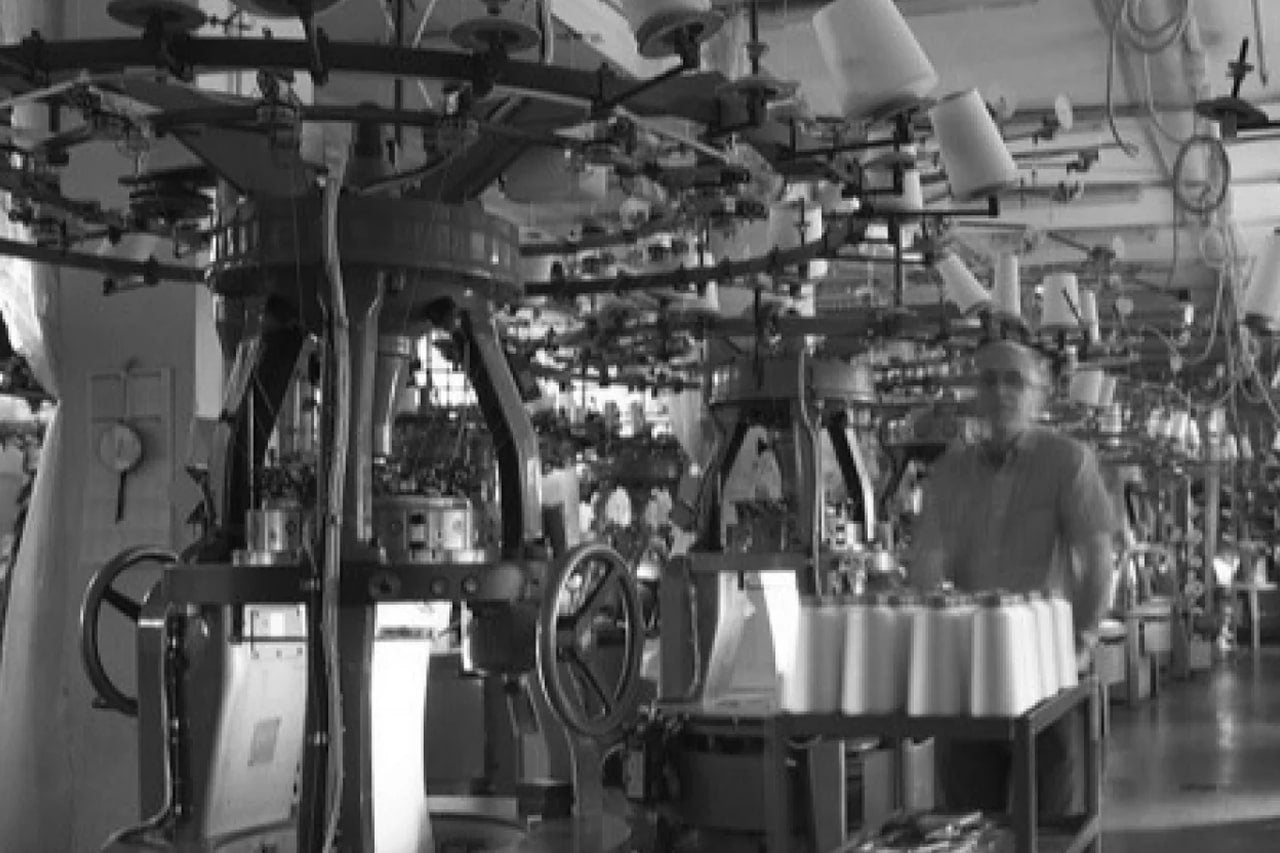
Sustainable Fashion in Italy: Evolution and Development
Discover the evolution of sustainable fashion in Italy: a fast-growing trend embraced by many brands over the last few years.

Index
- Sustainable Fashion in Italy: A Growing Trend
- Italians choose Sustainable Fashion
- Italian Sustainable Fashion Brands
- Conclusion
Sustainable fashion in Italy is proliferating, placing the country among the world leaders in the field. With over 100,000 companies dedicated to sustainable fashion and rising consumer awareness, this article will explore the sector's evolution and showcase some Italian brands that stand out for their dedication to ethics and sustainability. You will discover why more companies are investing in sustainable fashion and how Italian consumers are making conscious choices to promote a more eco-friendly lifestyle.
Sustainable Fashion in Italy: A Growing Trend
The commitment to sustainable fashion has rooted solid foundations in Italy, placing the country as the world's second leader in the sector. The most recent industry data shows that there are approximately 100,000 companies dedicated to sustainable fashion in Italy. This panorama includes not only large companies in the field but also small and medium-sized enterprises and local brands, with a focus on the domestic market. Moreover, many of these companies export their products abroad, helping to promote an increasingly ecological Made in Italy identity, in line with the long-awaited ecological transition.
But why do many companies invest in sustainable fashion? The benefits are numerous: from reducing energy consumption to optimising production processes and improving logistics. Investments in sustainable technologies often lead to significant savings for companies while promoting greater respect for the environment and workers. In addition, this strategy can offer considerable economic benefits, such as increased turnover and the attraction of new potential customers. The growing consumer desire for sustainable products explains the considerable competitive advantage of companies offering this kind of product.
Italians choose Sustainable Fashion
The eco-fashion industry is certainly on the rise, but what do Italians think about sustainable fashion? Sustainable fashion is a relevant priority for the majority of Italians, as revealed by the recent Pulsee Luce e Gas Index report. This observatory on the habits of Italians, produced by Pulsee in cooperation with the market research company NielsenIQ, provides valuable data on consumer behaviour.
According to the data, 83% of respondents try to make the most of the clothes they already own, thus reducing the need for new purchases. When it comes to making a new purchase, 68% of Italians prefer sustainable clothes. In addition, 66% want to reduce the amount of fashion shopping, while 51% lean towards vintage and second-hand. Encouragingly, over 80% of respondents make efforts to give a second life to garments they no longer use.
The report also shows that more than 82% of Italians believe it is crucial for major fashion brands to take measures to reduce their consumption of energy, water and other resources, encouraging the adoption of a more sustainable supply chain and products.
To define the sustainability of a garment, the key identification requirements are:
- production processes complying with environmental standards (for 53.5% of respondents), use of natural or organic materials (45.5%),
- guarantee of decent conditions for workers involved in production (44.5%, with a peak of 57.6% in the 18-25 age group)
- strength and durability of the garment (39%).
- The application of the principles of the circular economy, involving the use of materials from waste, is equally important (26.5%).
- In terms of purchases, preferences focus mainly on sustainable t-shirts and T-shirts (46.9%), jumpers and sweatshirts (31.1%) and underwear and pyjamas (24.6%).

Italian Sustainable Fashion Brands
Below you will find a selection of sustainable fashion brands that foster ethics, environmental responsibility and the production of clothing and accessories with sustainable materials. These Italian brands stand out for their commitment to reducing the environmental impact of the fashion industry and promoting awareness of sustainable practices. From natural fibres to recycled fabrics, from local production to veganism, these companies offer fashion options that respect the environment and the values of the wearer.
- OSCALITO: Founded in 1936, Oscalito is an Italian sustainable fashion company that stands out for its authentically Made in Italy supply chain. The brand takes care of the entire production process from yarn to finished garment (weaving, finishing, cutting, tailoring, quality control, logistics) in its Turin factory and guarantees the quality and Italian character of its products by using RFID technology to track each garment, thus ensuring accurate production and delivery control. It uses only natural fibres or fibres of natural origin for its creations.
- NATYOURAL (by Oscalito): Natyoural is a brand of Oscalito, which produces high high-quality knitwear with a vertically integrated production, starting from the yarns ( all-natural or of natural origin) to the finished garments, opposing the standardisation and depersonalisation of the clothing industry. Natyoural is committed to using only natural fibres, promotes a short supply chain and guarantees the highest quality and attention to detail.
- QUAGGA: Quagga is the first Italian brand to combine fashion and sustainability, founded in 2010. The brand is committed to designing sustainable and responsible clothes, using 100% recycled and cruelty-free materials. Respect for the environment, people and human relations is at the heart of their activities.
- ID.EIGHT: Id.Eight is an Italian vegan brand committed to creating environmentally friendly trainers. The shoes are made in Italy using materials from food industry waste and recycled fabrics. Id.Eight combines identity, eco-sustainability and circularity in its approach.
- ECODREAM: Ecodream is an Italian brand dedicated to ethical and sustainable fashion. It offers a variety of bags, backpacks and wallets made from recycled materials such as fibre, cotton and jute. Ecodream's mission is to recycle textile production waste and regenerated inner tubes.
- MALIA LAB: Malìa Lab is a sustainable fashion brand founded in 2016. It uses certified organic materials such as cotton, hemp, linen, burette silk and organic wool in its eco-friendly collections. The brand emphasises the importance of organic fabrics to ensure better yarn quality without the use of harmful substances.
- WUULS: Wuuls is a sustainable fashion brand that creates jumpers with wool from the Gran Sasso National Park. The company is also committed to offsetting its impact on the local area by allocating a portion of its profits for this purpose.
- ARTURO STORIES: Arturo Stories is an ethical and sustainable fashion brand that uses sustainable materials in the production of its Made in Italy socks. The socks are made from high-quality certified cotton and are available in one size.
- PAR.CO DENIM: Par.Co Denim is an Italian brand dedicated to vegan and sustainable fashion, specialising in the production of jeans. It uses environmentally friendly fabrics such as organic cotton, organic wool, linen, jute, ramie, cork and hemp to create jeans without materials of animal origin.
Conclusion
Sustainable fashion in Italy is gaining increasing popularity and consent among both businesses and consumers. The commitment to environmental and social sustainability in the fashion industry translates into numerous opportunities and benefits, such as reduced energy consumption, optimised production processes and improved working conditions. Companies that invest in a sustainable fashion not only contribute to preserving the environment but can also gain economic benefits, such as increased turnover and the attraction of new customers. On the other hand, Italian consumers are showing an increasing awareness of sustainable fashion, buying sustainable clothes and preferring brands that adopt eco-friendly practices.
The preference for natural materials, the desire to reduce the number of purchases and the interest in vintage and second-hand goods are tangible signs of a change in mentality. In addition, the desire to give a second life to unused garments and the focus on big brands taking measures to reduce their environmental impact highlight a general aspiration towards more responsible fashion. Italy, with its sustainable fashion brands committed to adopting eco-friendly practices and producing quality garments, is positioned as a reference point in the international sustainable fashion scene. The transition to a more sustainable fashion industry is a challenge that requires the collective commitment of companies, consumers and institutions, but also offers a more promising future for the fashion industry and the environment around us.


